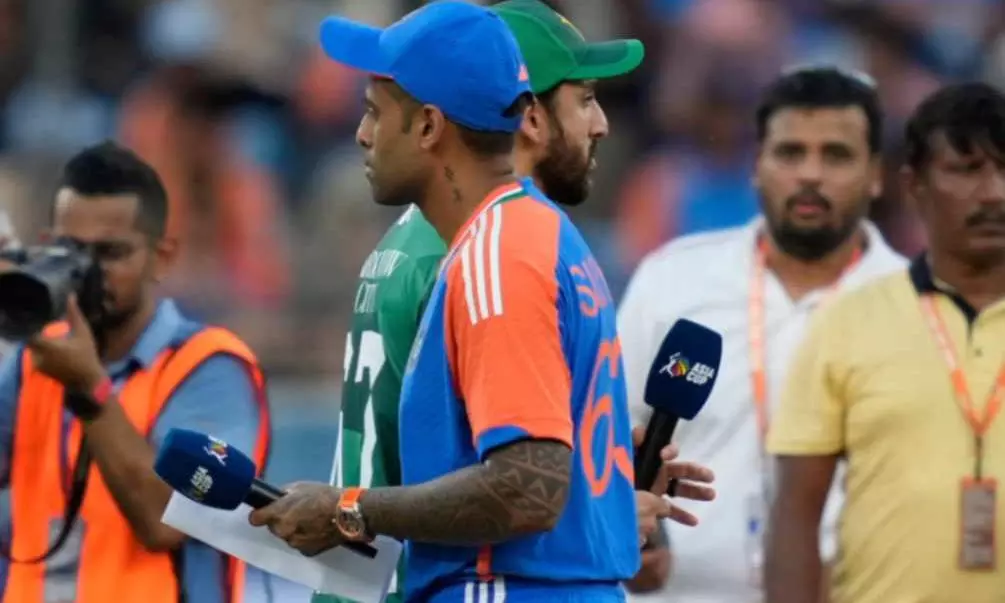
- Home
- India
- World
- Premium
- THE FEDERAL SPECIAL
- Analysis
- States
- Perspective
- Videos
- Sports
- Education
- Entertainment
- Elections
- Features
- Health
- Business
- Series
- In memoriam: Sheikh Mujibur Rahman
- Bishnoi's Men
- NEET TANGLE
- Economy Series
- Earth Day
- Kashmir’s Frozen Turbulence
- India@75
- The legend of Ramjanmabhoomi
- Liberalisation@30
- How to tame a dragon
- Celebrating biodiversity
- Farm Matters
- 50 days of solitude
- Bringing Migrants Home
- Budget 2020
- Jharkhand Votes
- The Federal Investigates
- The Federal Impact
- Vanishing Sand
- Gandhi @ 150
- Andhra Today
- Field report
- Operation Gulmarg
- Pandemic @1 Mn in India
- The Federal Year-End
- The Zero Year
- Science
- Brand studio
- Newsletter
- Elections 2024
- Events
- Home
- IndiaIndia
- World
- Analysis
- StatesStates
- PerspectivePerspective
- VideosVideos
- Sports
- Education
- Entertainment
- ElectionsElections
- Features
- Health
- BusinessBusiness
- Premium
- Loading...
Premium - Events

India's captain Suryakumar Yadav, right, and Pakistan's captain Salman Agha before the start of the Asia Cup cricket match between India and Pakistan at Dubai International Cricket Stadium in Dubai, United Arab Emirates, Sunday, Sept. 14, 2025. Photo: AP/PTI
As national pride and jingoism takes centerstage, the spirit of the 'Gentleman’s Game' faces its toughest test
The Asia Cup clash between India and Pakistan on Sunday (September 14) was as one-sided as many recent encounters between the two sides.
India demolished Pakistan with skill and dominance. Yet, what sparked the real headlines was not a six, a wicket, or a collapse, but the silence after the match. When the final ball was bowled, the Indian players did not extend their hands to their opponents. No customary greetings, no pats on the back, only a quiet walk off the field.
For a sport so steeped in tradition, especially one called the “Gentleman’s Game”, this was a startling break. Handshakes are not mere rituals; they are symbols of respect, a way of separating the battle of the pitch from the larger animosities outside. To deny it is to send a message.
And a message is exactly what India wanted to send.
Symbolic stand
The refusal cannot be seen in isolation. The shadow of the Pahalgam terror attack which claimed Indian lives and India’s Operation Sindoor loomed large over the contest. On social media, hashtags like #BoycottPakistan and #NoCricketWithTerror trended for days. Many argued that India should not be playing Pakistan at all, that cricketing ties were an insult to the martyrs. When the BCCI stuck to its commitments, it came under fire for “putting money before national sentiment”.
In this backdrop, the Indian team’s silent gesture, no handshake, no acknowledgement, was more than a cold shoulder. It was a symbolic stand, an assertion that while they had to play, they were not obliged to perform niceties. In the prevailing hostile climate, the decision to avoid handshakes was not just personal emotion but a reading of the national mood.
Also read: Amid handshake row, Raina claims Indian cricketers didn't want to play Asia Cup
What hardened Indian resolve were the actions of some Pakistani cricketers themselves. In the days after Operation Sindoor, Faheem Ashraf and Abrar Ahmed posted distasteful images on social media that were widely perceived as mocking India. Screenshots of their posts circulated quickly across Indian platforms. The tone was not merely insensitive, it was openly taunting at a time of national outrage; for most fans in India their posts became evidence of disrespect, a reminder that even sportspersons were willing to stoke jingoism.
By contrast, India’s players refrained from crass online gestures. They did not retaliate with memes or taunts. Instead, they chose silence on the field as their answer. By refusing handshakes, they conveyed disapproval without descending into rudeness. Given the larger context, their silence after the game could even be seen as dignified. They did not trade insults but simply won and walked away.
Captain Suryakumar Yadav’s words after the match made the intent clear. He said addressing the media, "This win is for the families of the victims of the Pahalgam attack. We stand with them and with our armed forces. That’s all that matters tonight."
Clearly, gestures of camaraderie could wait, respect for martyrs came first. As India won and walked away, it let silence speak volumes.
War without weapons
India and Pakistan’s cricket rivalry has always been more than sport. Fans and writers have long described it as “war without weapons.” Every match drips with political undertones, every win or loss amplified beyond the boundary ropes.
In recent years, however, the rivalry has lost some of its cricketing sting. India has dominated nearly every ICC and Asia Cup encounter. The contests no longer produce the same jangling nerves as in the past. But Pahalgam and Operation Sindoor have injected fresh intensity, not through cricketing balance, but through political and social context.
Also read: Ind vs Pak | No handshake row: Pakistan lodge protest with ACC
This is not the first time cricket has been consumed by jingoism. Former Pakistan captain Shahid Afridi has repeatedly stoked controversy with remarks belittling India and praising militancy. Each such comment has only deepened mistrust. Against that backdrop, when current players indulge in distasteful social media gestures, the Indian team’s refusal to shake hands becomes not just understandable, but almost inevitable.
Influence of social media
Still, this sad saga raises a deeper question: where does this stop? The influence of social media on this episode cannot be overstated. Before the match, Indian Twitter ( now ‘X’) was filled with calls for a boycott. Influencers and politicians alike accused the BCCI of “betraying martyrs” by allowing the team to play against Pakistan. In such a climate, even a handshake could have been interpreted as weakness.
Players today are not immune. Every move is scrutinised. A smile with a Pakistani player can invite trolling, accusations of being “anti-national.” For athletes under such glare, silence and withdrawal become safer than gestures of goodwill.
There is also reason to believe that this gesture had the tacit blessing of the BCCI. With the government under pressure, and the Board itself accused of valuing sponsorship money over soldiers’ sacrifices, the no-handshake stance and Suryakumar Yadav’s post-match comments looked calculated. It was a way to placate the boycott brigade without skipping the tournament.
Sportsmanship lost
Yet, cricketing traditions took the hit. The real danger lies ahead. If India signals its national pride with silent refusals, what if Pakistan retaliates by doing the same? What if, tomorrow, a Pakistani captain refuses to shake hands and even praises his Army’s “heroics” on social media? The spiral is easy to imagine - cricket reduced to theatre for political signalling, with sportsmanship lost in the noise.
Cricket has long been the one space where India and Pakistan could meet without bullets or bombs. But if even this space is overtaken by jingoism and social media pressures, then both sides, and the game itself may become poorer for it.
By walking off silently, India made its point. It conveyed solidarity with martyrs, it appeased domestic outrage, and it reminded Pakistan that gestures matter. But it also chipped away at cricket’s most sacred tradition.
Also read: India vs Pakistan: Why no handshakes? Suryakumar Yadav explains
For now, many fans will cheer. They will say India showed spine, that it gave a fitting response. But in the long run, the question will linger: are we willing to sacrifice the values of sport to score points in politics? Will wisdom prevail, or has a denied handshake become the new normal in cricket’s most fascinating rivalry?
For now, India’s stance has struck a chord at home. It has satisfied national pride without descending into vulgarity. But when India and Pakistan meet again in this Asia Cup, the world will be watching not just the runs and wickets, but the gestures after.
The scoreboard will matter, yes. But so too will the handshake or its absence.
(The Federal seeks to present views and opinions from all sides of the spectrum. The information, ideas or opinions in the articles are of the author and do not necessarily reflect the views of The Federal)


